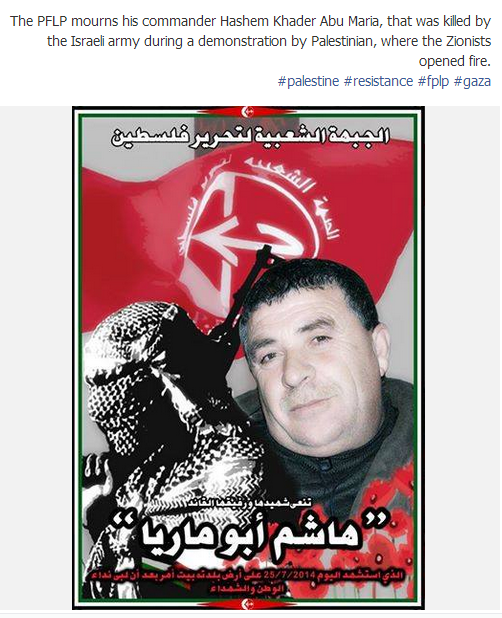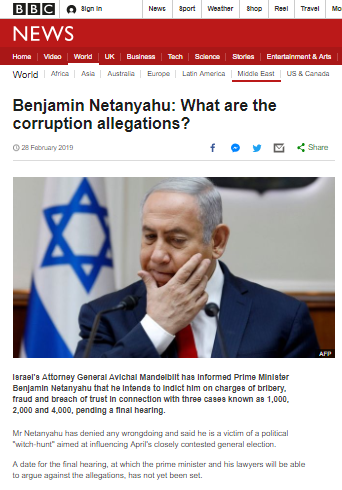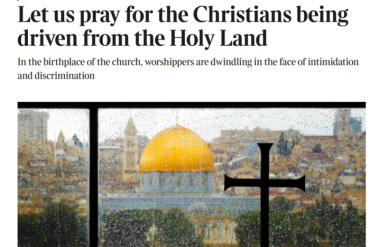A terrorist convicted by a court of law for the murders of four people was downgraded by the BBC to the status of “militant” on December 20th.
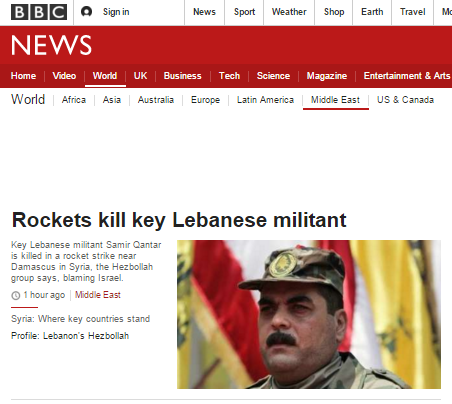
Such terminology is also seen in the body of the article titled “Lebanese militant Samir Qantar killed in rocket strike in Syria” and the international terror organization with which Kuntar was most recently associated is described in similarly euphemistic language.
“Key Lebanese militant Samir Qantar has been killed in a rocket strike near the Syrian capital, Damascus, Hezbollah has said.
The Lebanese Shia militant group blamed Israel for the air strike.” [emphasis added]
The BBC also found it appropriate to amplify a denial by Kuntar – despite the existence of forensic evidence to the contrary.
“He was convicted of murder over an attack on a civilian apartment block in Nahariya in 1979, carried out when he was 16.
Two policemen, a man and his four-year-old daughter were killed. A baby girl was accidentally smothered by her mother as she hid in a cupboard.
He was accused of killing the four-year-old girl with a rifle butt, which he denied.” [emphasis added]
The article goes on to state: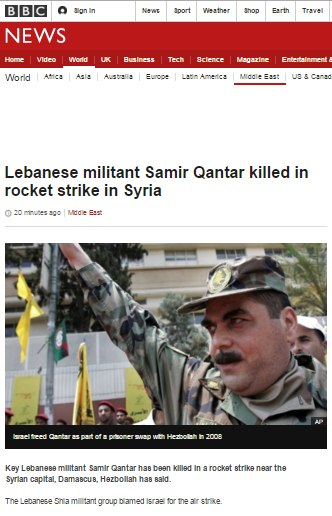
“His release in 2008 in exchange for the bodies of two Israeli soldiers captured by Hezbollah in 2006 was highly controversial.”
Audiences are not informed that Eldad Regev and Ehud Goldwasser were “captured by Hezbollah” and killed in an unprovoked cross border raid into Israeli territory.
Whilst the BBC’s report focuses on the attack committed by Kuntar in 1979, it does not inform readers that at the time he was an operative for another designated terrorist organization – the Palestine Liberation Front.
That focus on Kuntar’s past comes at the expense of the provision of obviously relevant context concerning his more recent activities, which this article condenses into the following opaque statement:
“Qantar is believed to have become a key figure in Hezbollah since his release.”
Whilst refraining from reporting adequately on that topic in its own words, the article quotes a US State Department announcement from three months ago which the BBC did not find newsworthy (in English, at least) at the time.
“In September, the US state department designated him a terrorist saying he had become one of Hezbollah’s “most visible and popular spokesmen”.
“Since Qantar’s return, he has also played an operational role, with the assistance of Iran and Syria, in building up Hezbollah’s terrorist infrastructure in the Golan Heights,” it said.”
A caption to one of the images illustrating the article states “[a] number of other people were killed in the air strike” but BBC audiences are not provided with any further information.
“Syrian media said that among the dead was Farhan Shaalan, a commander in the National Defense Forces, a Syrian anti-Israel resistance group founded by Kuntar and others. Those reports said that senior Hezbollah members were also present in the building at the time of the attack.”
Readers are not provided with detail about the obviously relevant issue of Kuntar’s recent operational roles with Hizballah and Iran– as documented in an article earlier this year from the Washington Institute.
“Meanwhile, Israel is also contending with terrorist threats from locals — including Druze — recruited by Hezbollah to place roadside improvised explosive devices (IEDs) near the Golan security barrier. Israeli military officials pointed to at least fifteen such attacks from March to December 2014. As one general told the New York Times last November, using locals provides plausible deniability; “Hezbollah gives them the IEDs and the Iranians give them the inspiration,” he noted. In January, an Israeli airstrike killed Jihad Mughniyah, son of the late Hezbollah terrorist chief Imad Mughniyah, as he took a “commanders’ tour” of the area; an Iranian general and several other operatives were killed as well. Since then, Jihad’s brother Mustafa has taken on a more prominent role in this part of Syria.
Although neither Hezbollah nor Iran wants to draw Israel into Syria at the moment, both feel compelled to maintain their credentials as pillars of the “resistance” against Israel. Accordingly, Hezbollah has used Samir Kuntar — a Lebanese Druze convicted for murdering an Israeli family in 1979 and released in a 2008 prisoner swap — to actively recruit Druze youths for terrorist attacks. Kuntar reportedly started off recruiting local militias to defend Druze villages from JN and other rebels. He then privately approached a few trusted recruits from Khadr to attack Israel, including two youths who originally came from Majdal Shams across the border.
Recruiting Druze, let alone Israeli Druze, put the entire community in a precarious position. Making matters worse, Kuntar’s cell carried out an IED attack on April 27, which fell during the major Druze holiday of Ziyarat al-Nabi Shuayb. Furious over the incident, one Druze leader reportedly made a youth publicly disavow his involvement in Kuntar’s group while standing in front of his whole village.”
Readers may recall that the April incident was also the subject of some confusing BBC reporting which made liberal use of the term “militants” and was as unsatisfactory as most of the previous BBC reporting on Hizballah attacks against Israel in the Golan Heights. However, whilst those incidents were not mentioned in this report, the writer did find it necessary to inform readers that “Israel is believed to have carried out a number of attacks inside Syria during its civil conflict, targeting Hezbollah”.
At least one Hizballah-linked figure has already threatened Israel following Kuntar’s death. If – or more likely when – such an attack comes, BBC audiences will of course be too under-informed to understand its context.

